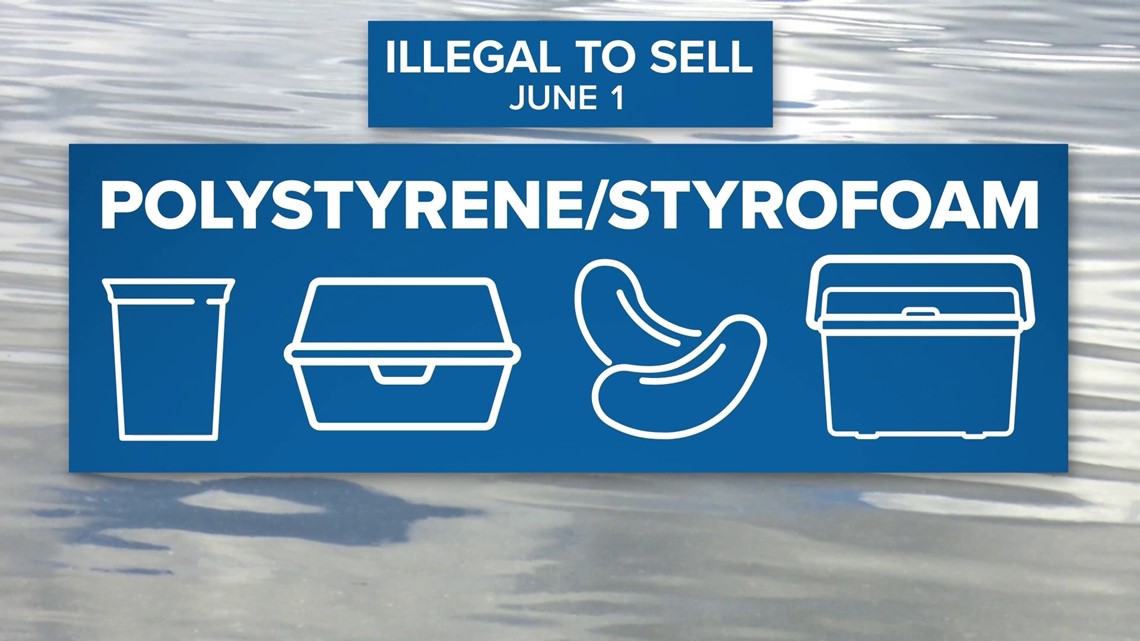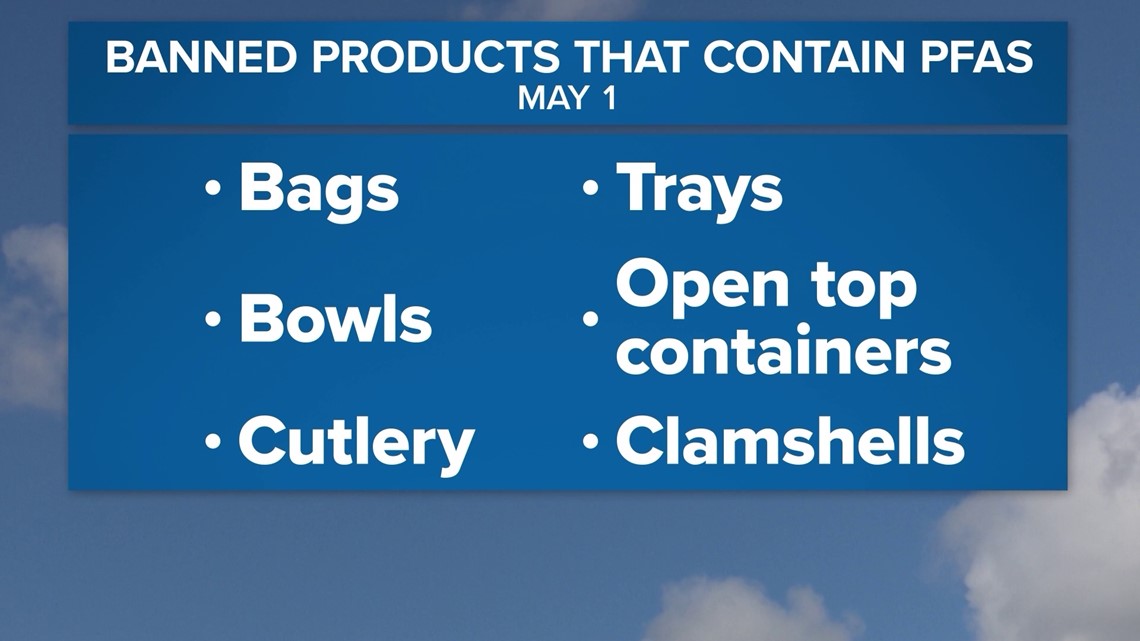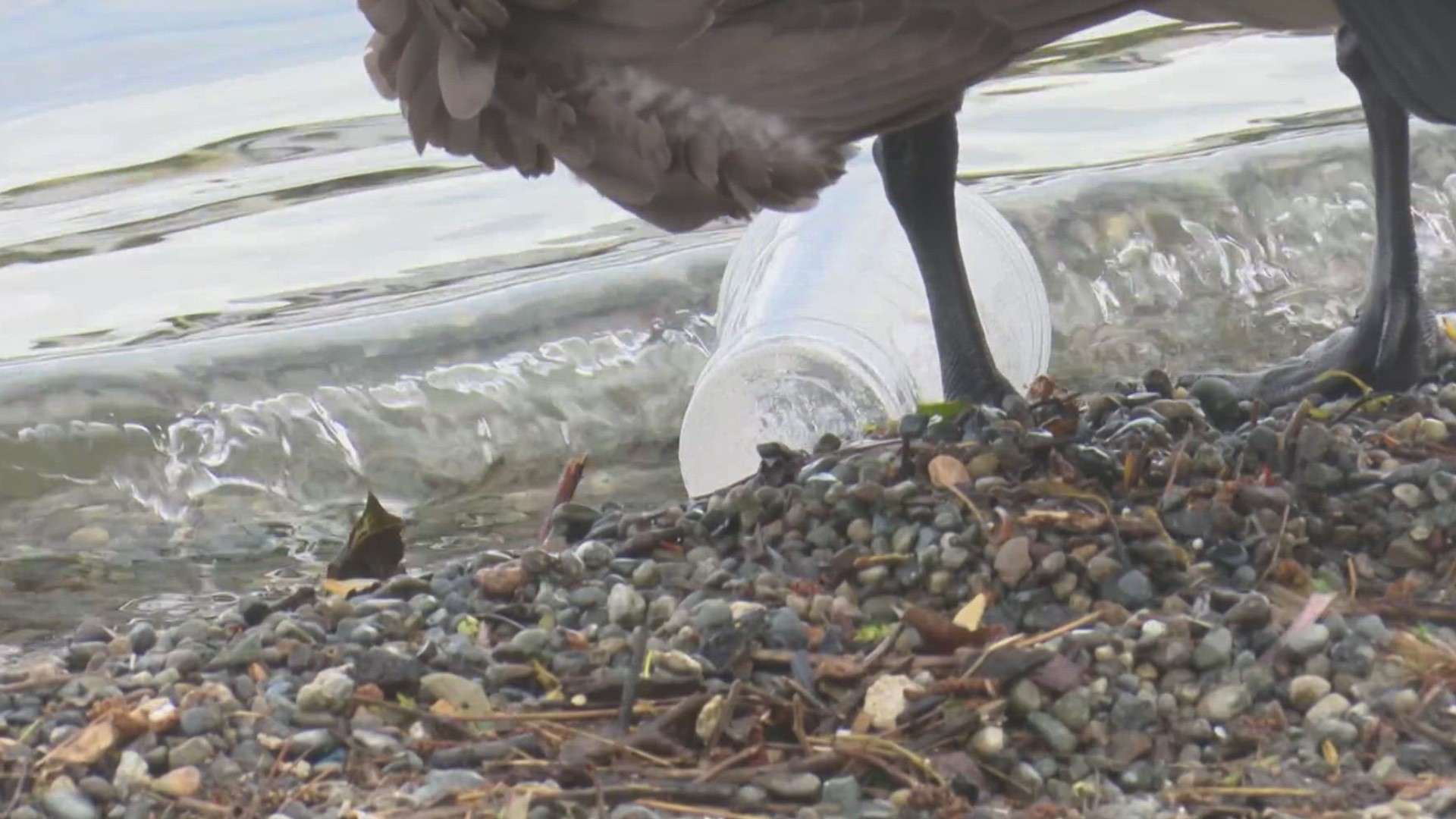WASHINGTON, USA —
On a picture-perfect day in Seattle, Emily Gonzalez, the director of Law and Policy at Puget Soundkeeper Alliance, walked around the water at Lake Union with a large bag in one hand and a grabber in the other and scanned the ground along the beach.
Instantly, she found what she was looking for.
“One thing I knew we would find when we’re out here is just along the shorelines, I’m seeing all the Styrofoam,” she said, picking it up and putting it into her garbage bag. She added that Styrofoam is a common name, but the technical term is expanded polystyrene.
She said Styrofoam is one of the top 10 items environmental nonprofit Puget Soundkeeper finds in their cleanups and doesn’t have an exact idea of how long it takes to decompose.
“At least 500 years. We don’t really know because it’s so long,” she said.
She’s been working on getting rid of this item, and this year, major steps will be taken to do so.
Starting June 1, 2024, expanded polystyrene products will be prohibited from sale in Washington. This includes food service products like cups, plates, to-go clamshells, trays and food containers, as well as packing peanuts and single-use coolers.


That’s not the only policy change coming soon.
Starting May 1, 2024, food packaging in Washington must not contain PFAS, a toxic chemical used to greaseproof and waterproof food packaging.


Marissa Smith, a senior regulatory toxicologist at the Washington Department of Ecology, said this is years in the making and will have major benefits for both people and the planet.
Smith said that in 2018, legislation was passed banning the use of PFAS, but the Department of Ecology had to find safe alternatives before the law could be implemented.
The first bans were implemented in 2023. Wraps, plates, food boats, and pizza boxes were banned on Feb. 1, 2023, if they contain PFAS.
Now, on May 1, 2024, bags, bowls, plates, trays, open-top containers, cups, and closed containers like clamshells are banned if they contain PFAS.
“The PFAS in your food packaging can leach into your food, and we know that diet is one of the biggest sources of exposure. So, people who eat burgers or fries that have been wrapped in PFAS-containing food packaging have higher exposure to PFAS. And that’s problematic because these chemicals can bioaccumulate in our bodies, they’re persistent in the environment, and they’re associated with a number of human health and environmental problems,” said Smith.
Smith said PFAS are designed to be strong and don’t break down easily, so if they leak into the environment, they can get into groundwater and drinking water and ultimately contaminate seafood resources.
She said human health impacts can lead to immune suppression and reproduction issues, including hypertension.
“As a consumer, you might not notice the difference. It might look exactly the same. But the chemical that’s used to provide that grease resistance so that the grease from your french fries doesn’t end up in your lap is safer for you and safer for the environment,” said Smith.
Both Smith and Gonzalez emphasize that these updates in 2024 are focused on accountability, with major corporations creating these toxic items rather than the consumer.
"Right now, the consumer is largely responsible for dealing with the trash and the longevity and there’s only so many things that we as consumers have control over. If the producers of plastics themselves are incentivized to use better materials, if the market forces push for that, we will really get some big-picture change,” said Gonzalez.
Gonzalez added that this Earth Day, she’s hopeful these policy changes coming online in the next few months will be tipping points for garbage and pollution in the region.
“I'm hopeful for it. A lot of times, all issues around pollution seem huge and insurmountable and expensive and it’s hard to have the will to tackle it. But one thing I'm excited for this year is the push and the focus on producer responsibility,” said Gonzalez.
Smith added that many restaurants have already cut out Styrofoam and PFAS products.
If restaurants or food suppliers do not comply, Smith said their goal is to educate and ensure businesses can comply rather than enforce fines. However, they do have the ability to enforce if businesses refuse to comply.
Smith said 12 other states have similar bans. Information on those other state policies can be found here.
More information on the restricted items and timelines can be found here.

